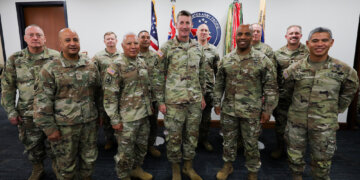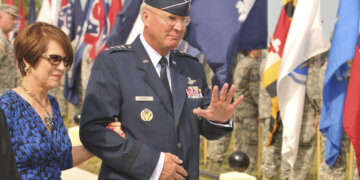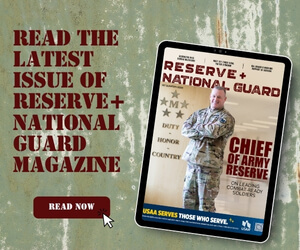Members of the National Guard in 20 states now have a solution for a common challenge facing working parents: quality child care.
Upwards, the largest child care network in the U.S., partnered with the Army Reserve in 2023 on a pilot program that was so successful it expanded to include the Army National Guard last year. Now, thousands of soldiers and their families are benefiting from the service, including Sgt. 1st Class Tyler Sigler.
Sigler, who serves with Wisconsin Army National Guard, initially thought the free child care services sounded too good to be true. After all, he and his wife, also a guardsman, have two sons that require care during the couple’s dueling commitments. But the program manager at Upwards confirmed, the Siglers just had to sign-up, pick the dates they needed, “and you don’t pay a cent.”

“It seemed out of this world that something this nice could be available to us,” Sigler, a full-time United States Property and Fiscal Officer of Wisconsin, said. It is one of the exact reasons Upwards’ CEO Jessica Chang set out to find a better way for other parents, like herself, when founding the company.
Chang experienced her own career barriers after having her first child, which included a lack of affordable and available child care. Upwards works with parents to simplify the search for reliable child care with their technology-driven marketplace and through partnerships with government entities — like the U.S. Army, National Guard, and Defense Department (DOD) — that provide sponsored care.
Jessa Santangelo, VP of Business Development and Community Impact at Upwards, added that the program for eligible military members locates and coordinates child care during battle assemblies, annual training, and emergency deployments for the Army Reserve, as well as drill weekends for the Army National Guard. The DOD then covers the costs.
“Military children really deserve that extra love with all their moves, and child care can be their new sense of community right away in a new location,” said Santangelo, the granddaughter of a soldier. “To be able to give back to those who are sacrificing for our country, to help the children who are dealing with struggles that come with their parents serving, is really important to us.”
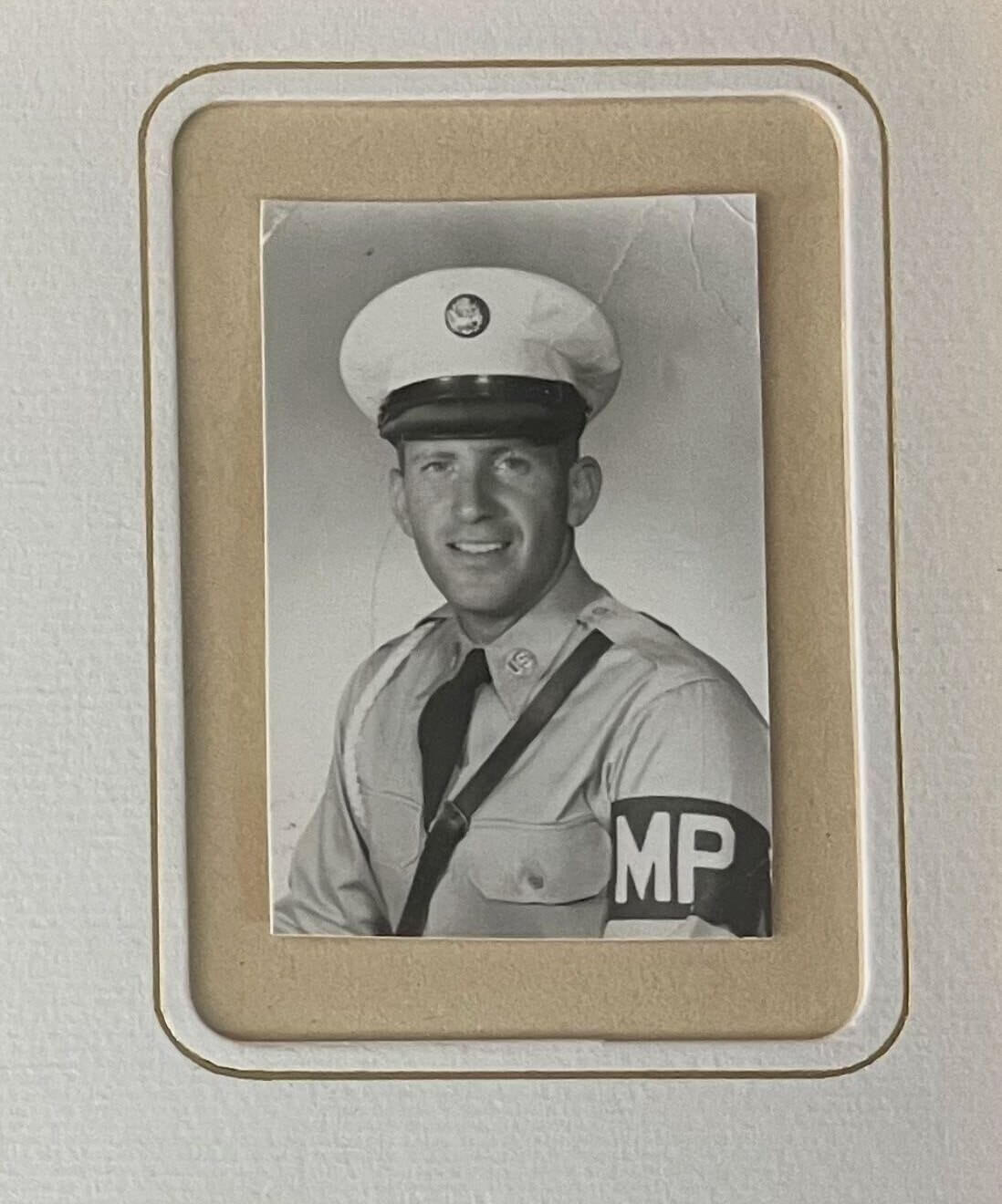
The program continues to evolve to the needs of military families, too. Santangelo explained that more than half of service members using Upwards are doing so at the last minute, as backup or emergency care for their children. That discovery has led to ensuring that the Upwards care provider network is staffed 24/7.
Currently, Upwards is servicing more than 3,000 families from the Army National Guard alone. Almost 500 child care providers, meanwhile, have expanded their licensing hours. Upwards’ research has also shown that the program is a win-win for everyone, including the providers whose income has increased 34% on average.
“This has stabilized child care jobs and local child care businesses,” Santangelo said. “Child care has been a very delicate and fragmented industry, so the fact that we’re able to help them become more stable and increase their income is really phenomenal.”
Sigler, who said he lives “in a place where the population of cows exceeds humans,” especially appreciates the way that Upwards has taken the pressure off his in-laws. They were previously in charge of drill weekend child care until his mother-in-law was diagnosed with cancer.
“Our experience with Upwards so far has been fantastic,” said Sigler, the father of a 5-year-old and a 2-year-old. “I quite literally just put in requests for every required date, and they’re honored. We have not run into one single miscommunication or cancellation, and our provider is a very nice lady who always takes care of our kids.”
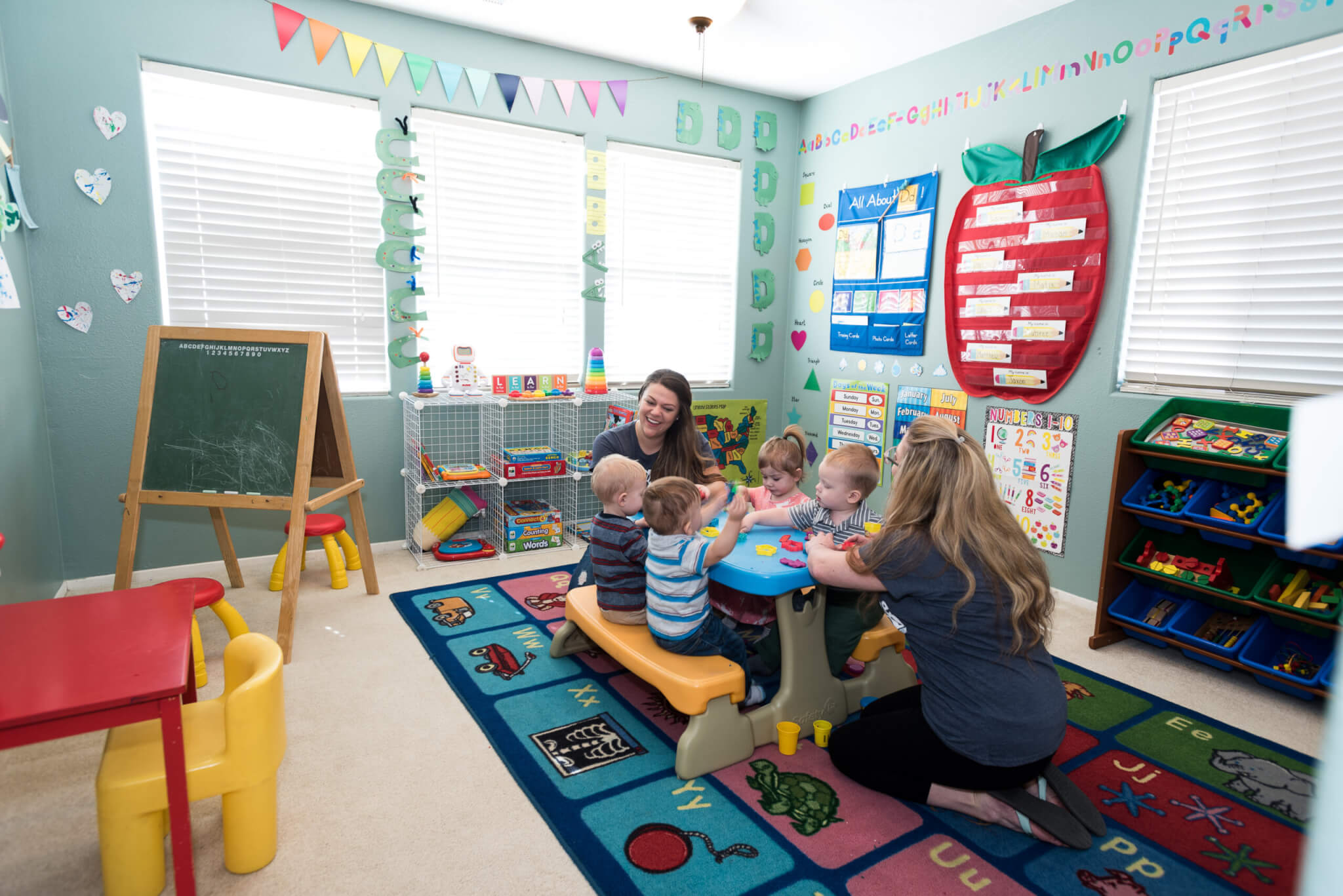
Santangelo said her team hopes to hear even more of those kinds of testimonies in the future, as they work toward expanding the program to more states and military branches.
“We want Upwards to be able to take care of veteran families someday, too,” she said. “Because if you get special home loans and medical benefits after retiring, we want them to have benefits for child care, too, and have that benefit forever.”
Currently, the 20 eligible state locations for the Army National Guard include: Arkansas, Colorado, Georgia, Idaho, Iowa, Illinois, Kansas, Louisiana, Massachusetts, Maryland, Minnesota, Missouri, New Hampshire, New Mexico, Ohio, Oregon, Virginia, Vermont, Washington, and Wisconsin. For the Army Reserve, current eligible locations are Kansas, Illinois, Iowa, Missouri, and KS, and Northern California.



















